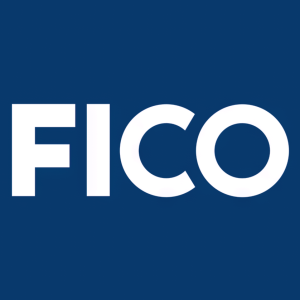FICO Insights: More than 3 in 5 Indonesian SMEs Could Ditch Traditional Banks in 2022
Recent research highlights the dissatisfaction of over 62% of SMEs in the APAC region with traditional banks, particularly regarding credit access and lack of support during the COVID-19 pandemic. Notably, 67% of Indonesian SMEs plan to explore alternative borrowing products in 2022. The study, conducted by RFI Global for FICO, underscores banks' need to improve transparency and customer experience to retain business. Key decision factors for SMEs include competitive interest rates and a streamlined application process. Without change, banks risk losing ground to alternative lenders.
- Research indicates that SMEs are actively seeking new borrowing options, presenting banks an opportunity for improvement.
- FICO's involvement in the research bolsters its reputation as a thought leader in financial analytics.
- Over 70% of APAC SMEs are dissatisfied with their current bank's credit support, indicating a significant market risk for traditional banks.
- A concerning trend exists as 62% to 70% percent of SMEs may shift to non-traditional lenders due to dissatisfaction.
Room for Improvement -- Post-pandemic environment sees more than 62 percent of APAC SMEs less than satisfied with traditional banks across a range of categories
Highlights
Impact of COVID-19 on SMEs:
- 67 percent of Indonesia’s SMEs expect to take up new or alternative borrowing products in 2022
- An overwhelming majority (70 percent) of APAC SMEs are less than satisfied with access to credit from their main bank
- Other issues with traditional banks include lack of transparency, information, and guidance
- The top loan decision driver for APAC SMEs across the board is competitive interest rates (41 percent)
New insights from RFI Global (prepared for FICO based on research from the
Amidst strong interest in borrowing funds, between 62-70 percent of APAC SMEs are less than satisfied with their main bank’s level of support in response to the COVID-19 outbreak. Nearly 70 percent of Indonesia’s SMEs expect to take up new or alternative / non-traditional borrowing products in 2022.
More information: https://www.fico.com/en/latest-thinking/white-paper/what-do-smes-need-their-banking-providers-post-pandemic
“The pandemic put a sudden, massive burden on SMEs, globally, and they didn’t think banks did enough to help them,” said
Verdict: Room for Improvement
Banks need to understand what’s causing SMEs to consider alternative funding sources. Survey respondents across the
- Access to credit (70 percent)
- Financial assistance (69 percent)
- Information and guidance (68 percent)
- Transparency re: decisions and processes (68 percent)
- Speed of response (64 percent)
SMEs call for competitive rates, simplified processes
According to this latest research, when choosing a loan provider or financial institution, the top three drivers for Indonesian SMEs are:
- Competitive interest rates
- Ease and speed of application process
- The ability to obtain the credit amount required.
“Alternative lenders have the potential to gain ground based on the challenges identified by this research and by our own market observations,” said Sharma. “However, the opportunity is there for traditional banks to retain borrowers if they understand those key decisioning criteria alongside the challenges and funding support sentiments of SME and the themes that have emerged.”
“If traditional banks are to experience continued and sustainable business growth from the SME segment in the APAC region, they must simplify the application process and improve transparency, as well as customer experience,” continued Sharma. “From the banks’ risk management perspective, they can support these efforts with scalable, well-informed decisioning tools that can both speed up the process for all and minimize risk.”
The results speak for themselves
One of Australia’s top-four banks wanted to boost sales and margins by cutting down decision-making time, whilst improving lending services and identified the SME segment as an area for growth. It invested in FICO Platform and analytic services to create an automated, machine learning-powered digital lending solution that utilized transaction data. Risk model performance improved by 10 percent, and the bank’s projections for annual lending to existing SME customers and incremental lending to new SME customers increased by AUD
The findings from RFI Global examined and analyzed two years’ worth of polls by the
About FICO
FICO (NYSE: FICO) powers decisions that help people and businesses around the world prosper. Founded in 1956, the company is a pioneer in the use of predictive analytics and data science to improve operational decisions. FICO holds more than 200 US and foreign patents on technologies that increase profitability, customer satisfaction and growth for businesses in financial services, manufacturing, telecommunications, health care, retail and many other industries. Using FICO solutions, businesses in more than 120 countries do everything from protecting 2.6 billion payment cards from fraud, to helping people get credit, to ensuring that millions of airplanes and rental cars are in the right place at the right time.
Learn more at www.fico.com.
FICO is a registered trademark of
View source version on businesswire.com: https://www.businesswire.com/news/home/20220420005504/en/
RICE for FICO
+65 3157 5680
neil.mirano@ricecomms.com
FICO
+65 9171 0965
saxonshirley@fico.com
Source: FICO
FAQ
What percentage of APAC SMEs are dissatisfied with their banks according to FICO's research?
How many Indonesian SMEs expect to seek alternative borrowing products in 2022?
What do SMEs consider the top factor when choosing loan providers?
How has COVID-19 affected the relationship between SMEs and traditional banks?







